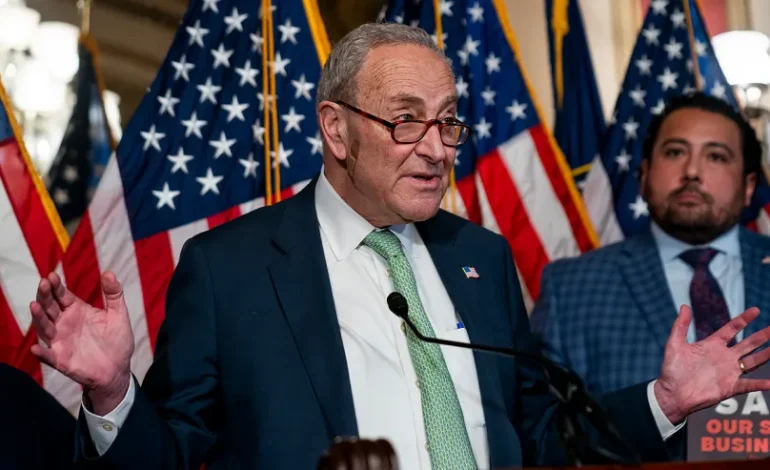Schumer Criticizes AI Chip Sales to Gulf Nations Over Security Concerns

Senate Minority Leader Chuck Schumer voiced strong concerns Thursday over recent US agreements to export advanced artificial intelligence (AI) chips to Saudi Arabia and the United Arab Emirates (UAE), criticizing President Donald Trump’s support for the deals.
Schumer, a long-standing advocate for US leadership in AI innovation, warned that the agreements risk compromising national security by potentially allowing sensitive American technology to fall into the hands of geopolitical rivals, particularly China.
Speaking on the Senate floor, Schumer said:
“This deal could very well be dangerous because we have no clarity on how the Saudis and Emiratis will prevent the Chinese Communist Party, the Chinese government, the Chinese manufacturing establishment from getting their hands on these chips.”
He expressed concern that despite US restrictions on semiconductor exports to countries like China, indirect access via third-party nations could undermine these efforts.
“Inevitably, when foreign countries end up with American-made chips, the CCP, the Chinese Communist Party, sooner or later gets ahold of these American chips and their secrets in them,” Schumer stated.
His remarks followed a series of new partnerships announced by US chipmakers during Trump’s recent visit to the Middle East. Nvidia, one of the world’s leading AI chip developers, plans to sell 18,000 of its cutting-edge Blackwell chips to a Saudi-backed artificial intelligence firm. Advanced Micro Devices (AMD) and Qualcomm have also announced agreements with Humain, an AI startup supported by Saudi Arabia’s sovereign wealth fund.
While the deals are being touted as key steps toward boosting Gulf nations’ AI capabilities, Schumer argued they could shift high-tech manufacturing away from the United States.
“What’s this about bringing jobs and high-end technology back to the country?” he asked. “All of a sudden it’s OK to give it to other countries? Especially other countries whose security might be not as tight as ours.”
A bipartisan voice of caution has emerged. Representative John Moolenaar, a Republican who chairs the House Select Committee on the Chinese Communist Party, also raised red flags. He warned that such deals present “a vulnerability for the CCP to exploit.”
As part of Trump’s Gulf tour, the United States and the UAE finalized a technology framework agreement. A source familiar with the negotiations said the pact includes mutual commitments to safeguard the technology being exchanged. The agreement is expected to be formally signed during Trump’s final stop in the region.
Reuters previously reported that Washington and Abu Dhabi are nearing a deal that would allow the UAE to import up to 500,000 of Nvidia’s most advanced AI chips annually starting in 2025. While the US Commerce Department and other agencies have yet to comment on the development, the deal would mark a major leap forward for the UAE, which has ambitions to become a global AI hub.









The latest news in your social feeds
Subscribe to our social media platforms to stay tuned